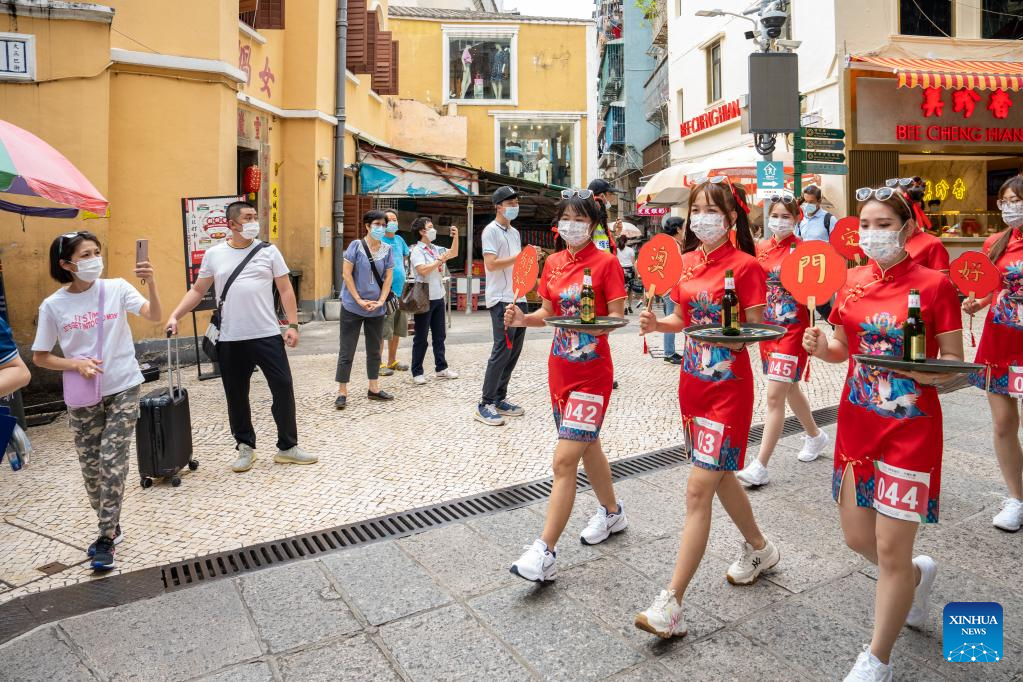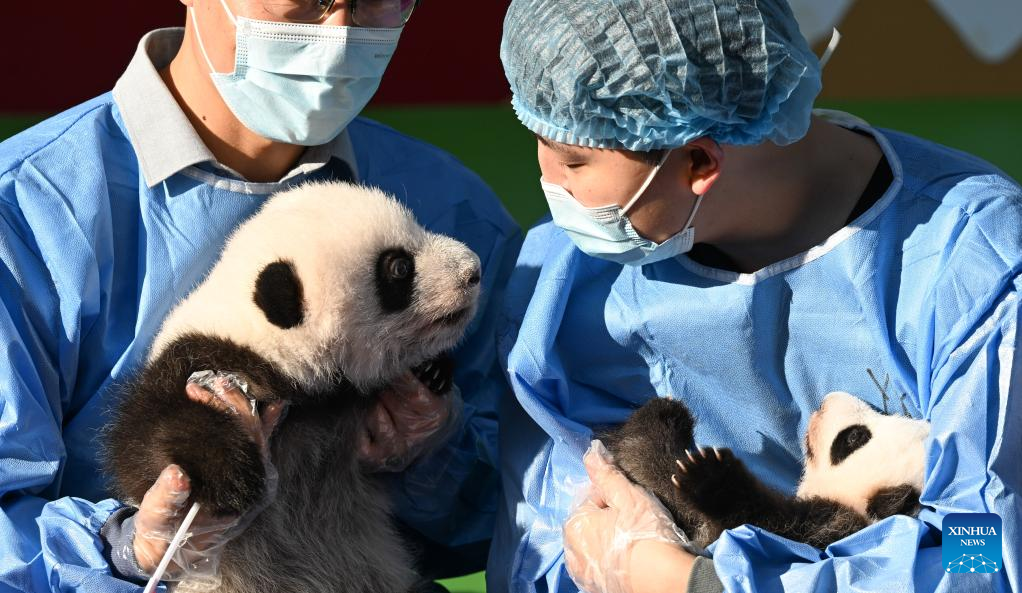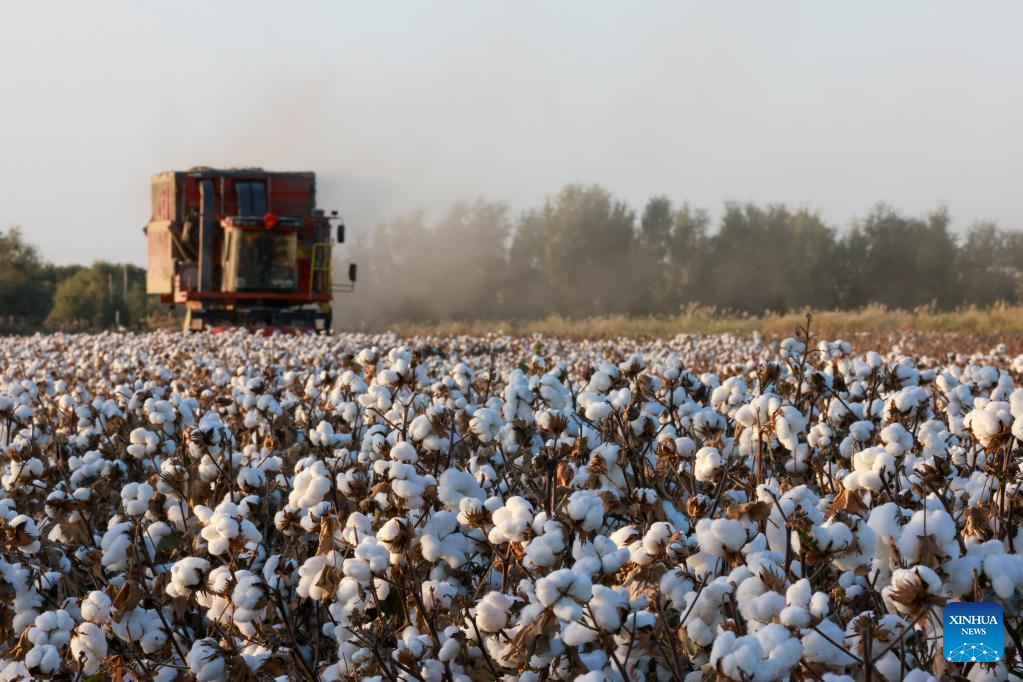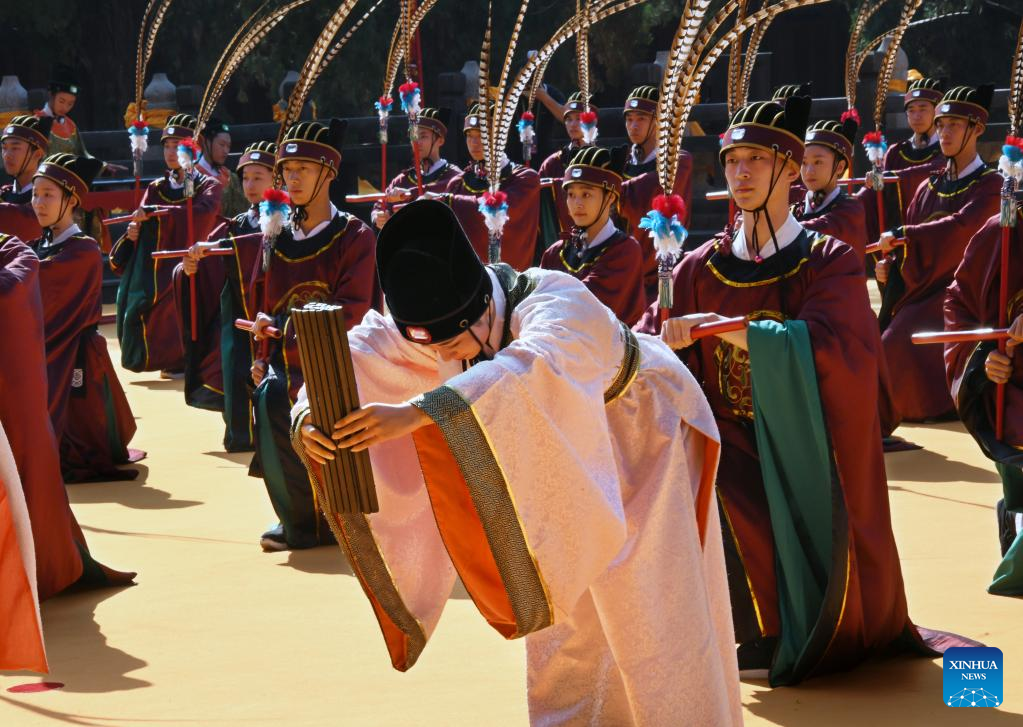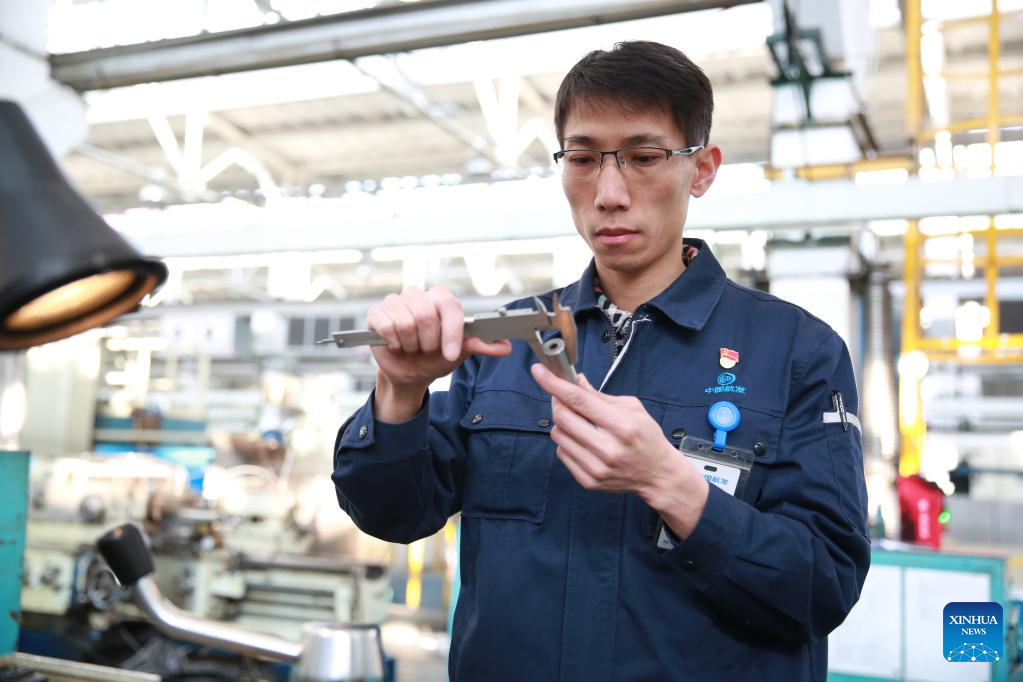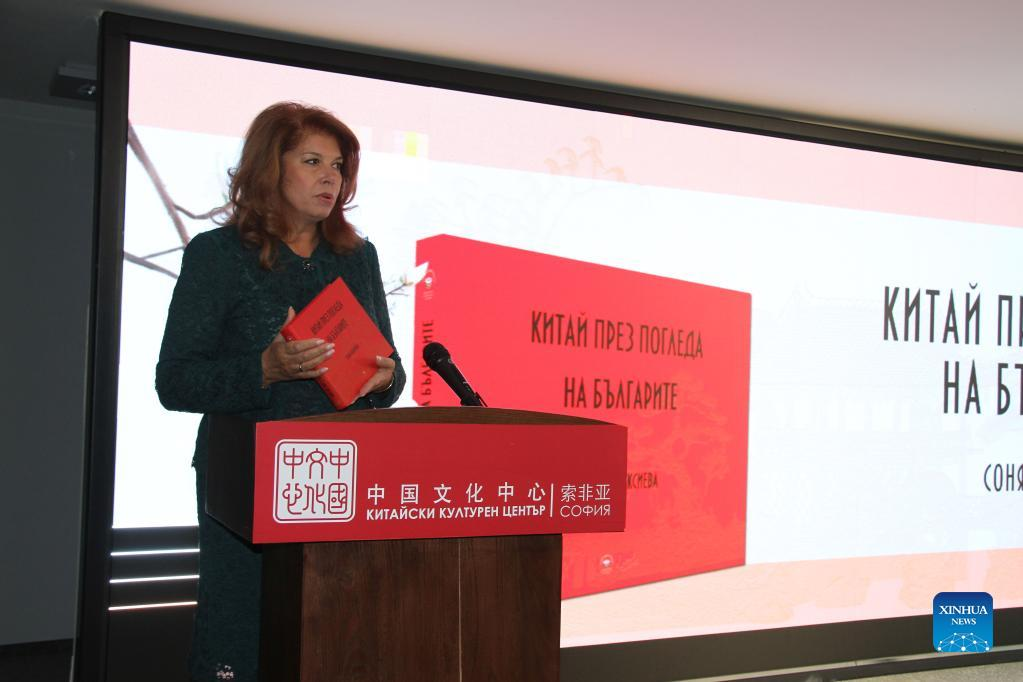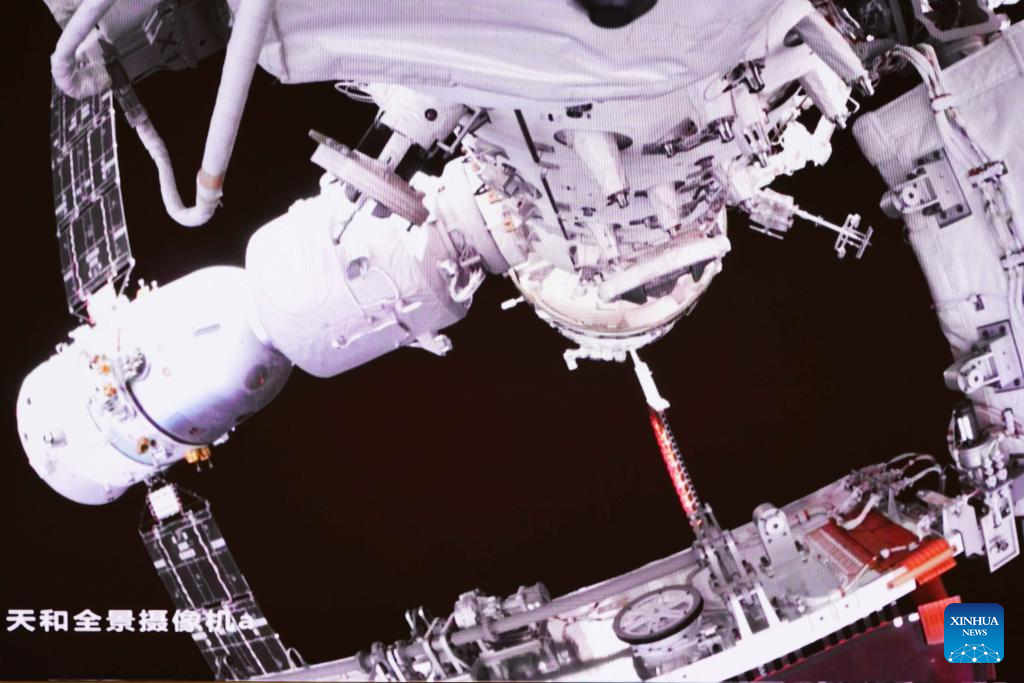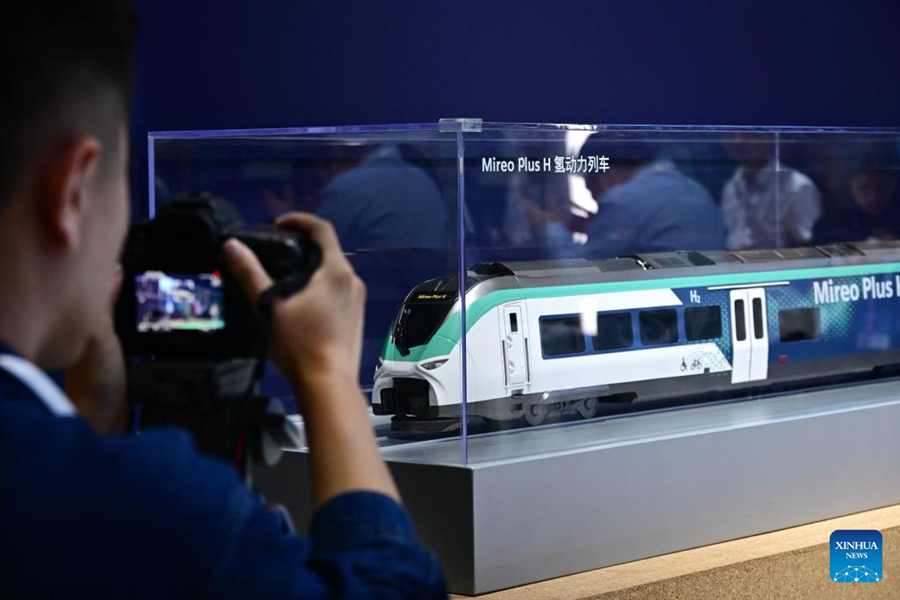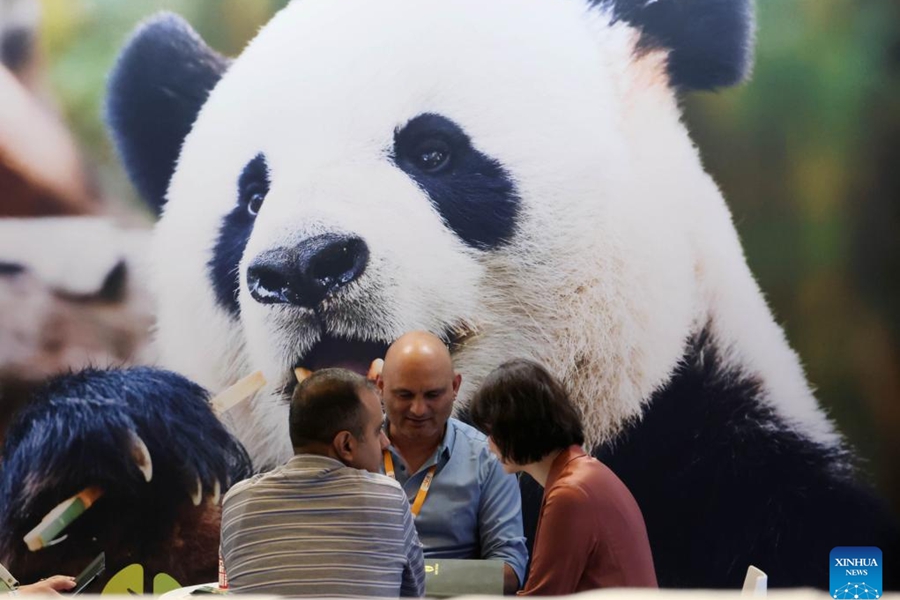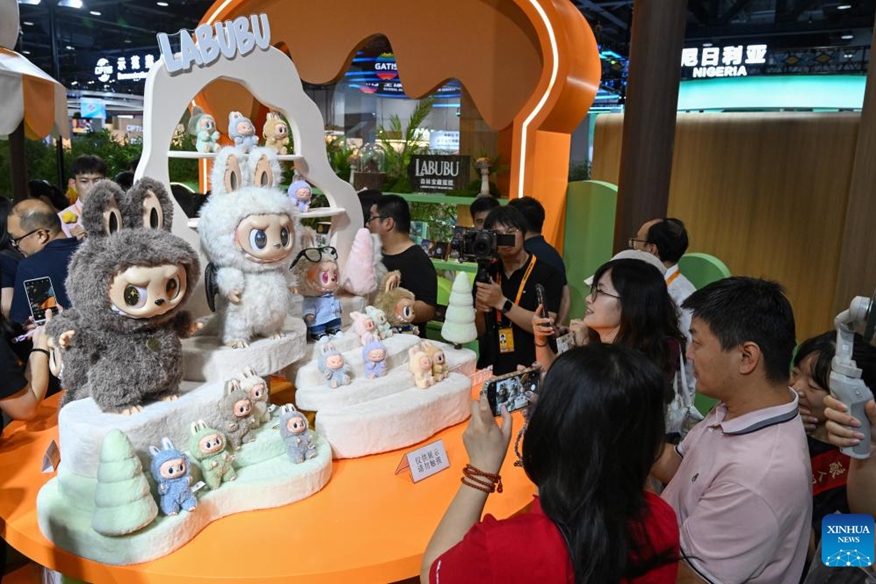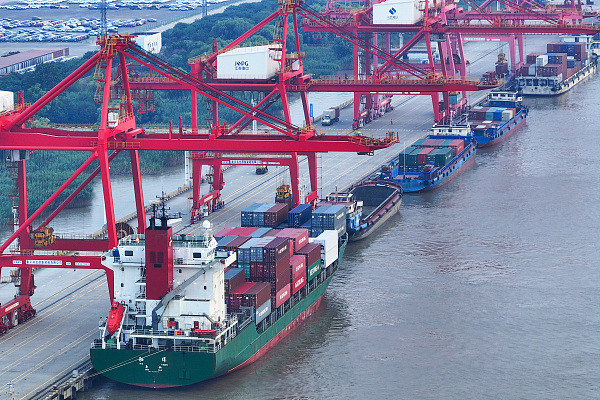
This photo taken on August 6, 2024 shows a terminal at Longtan Containers Port in Nanjing. (CFP)
Nanjing Customs issued over 60,000 certificates of origin under the Regional Comprehensive Economic Partnership (RCEP) in the first seven months of the year for exported goods worth nearly 19 billion yuan, ranking first nationwide.
Jiangsu companies enjoyed reduced tariffs totalling nearly 300 million yuan for imported goods worth more than 12 billion yuan, up 34.7% and 22.46% year-on-year respectively, according to the Customs.
As the world's largest free trade pact in terms of population and trade volume, the RCEP has promoted trade and industrial cooperation between China and RCEP member countries.
Jiangsu, a powerhouse of textile industry, boasts a long history and extensive production experience. The province is also home to China’s only national-level advanced manufacturing cluster in the textile sector. According to Nanjing Customs, Jiangsu’s textile and garment exports from January to July this year reached 188.3 billion yuan, an increase of 8.08% year-on-year.
Xinyun Knitting Trading Co., Ltd. in Changshu City shipped a batch of textiles valued at 260,000 yuan with an RCEP certificate of origin on August 27. The company’s business manager, Lyu Xinde, said, "We mainly engage in the production of knitwear, beddings, and clothing. In the first seven months of this year, we applied for RCEP certificates of origin for exports worth over 16 million yuan."
Among the importers, Great Orient Chemical (Taicang) Co., Ltd benefited from the RCEP certificate of origin for the import of 2,810 tonnes of liquid paraffin from Japan, which completed customs clearance on August 27. The company’s business manager, Deng Shangli, mentioned that the RCEP agreement has provided more options to customers, and the imports from Japan now enjoy a zero tariff down from original 6%.
"Now, we have a lot of orders in hand and must ensure a sufficient supply of raw materials. Currently, purchases from Japan account for 45% of our total procurement, significantly reducing production costs," Deng added.

